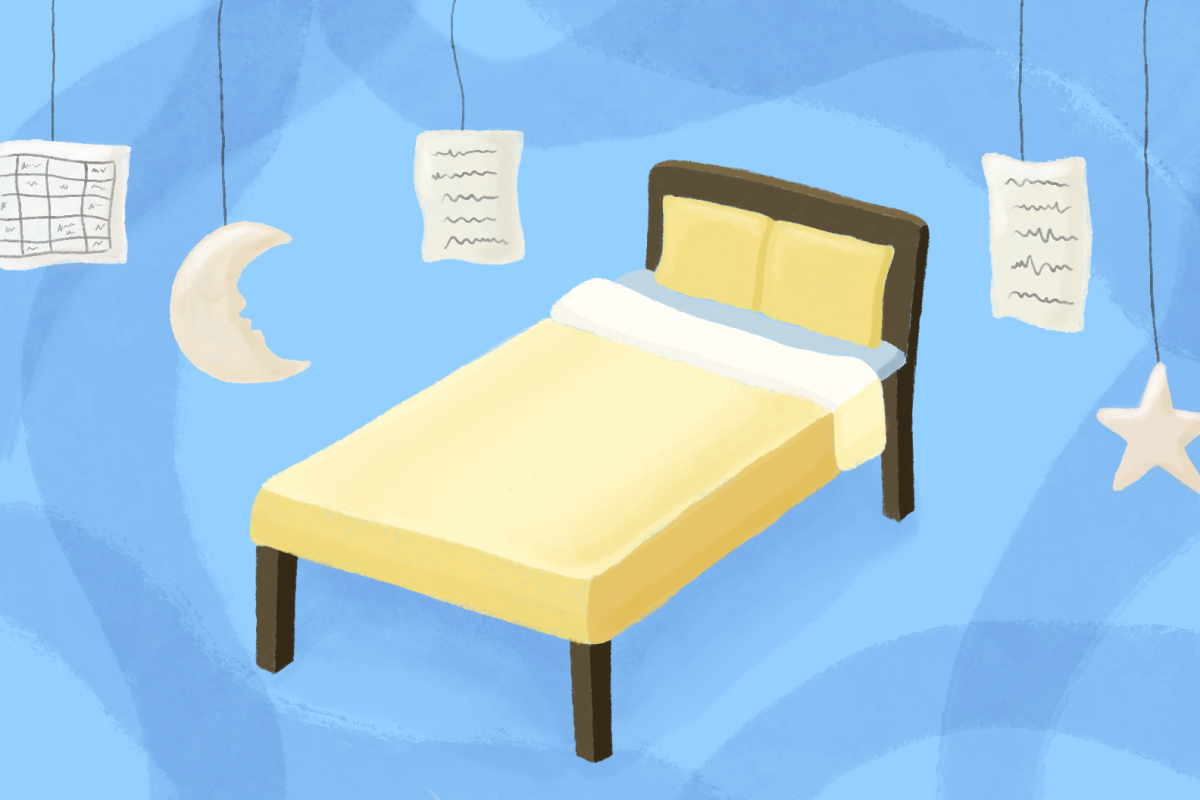The calm before the next round of midterms is here, and students may find themselves rushing to get out of the PCL to do anything but study: go shopping at the Domain, grab dinner at Pizza Press with friends or let loose at a Phi Psi mixer. For many students, this may be the ideal way to decompress. However, many people also prefer to lay in bed and rewatch “The Office” for the 12th time with a bag of Twizzlers.
Constantly socializing isn’t of interest to everyone, yet at a school with over 1,000 on-campus organizations and a bustling city at its fingertips, it’s nearly impossible not to feel forced to go out and explore. Students should normalize enjoying their downtime without scrambling to fill it.
“UT is full of very ambitious, driven, wonderful students, and there’s lots of things going on all the time,” said Angelique Karditzas, Longhorn Wellness Center health promotion coordinator. So, sometimes prioritizing rest seems to be something that feels a little bit difficult.”
In addition to the self-motivated need to be involved in as many activities as possible, we also often face peer pressure to make the most of our time at UT. This is especially true during the first few semesters on campus.
“(Freshman year), there was pressure to always be busy,” nursing sophomore Ella Folh said. “But now, as a sophomore, I’ve done a really good job of trying different things around Austin and within the University itself. I know my social battery and what I can handle and also just learned how to not feel FOMO.”
For many students who choose to be involved in inherently social activities such as athletics, Greek life and spirit organizations, this may not be a problem.
“(For), one person, socializing all day long, may fill them up and give them the ability to sleep well at night because they’ve had all of their social interaction,” Karditzas said. “For another person, it may cause them to feel depleted, and they need to do something else to find that balance again.”
Therefore, it is up to students to identify how they best relax, whether it be socializing or basking in alone time, ensuring they are well-rested to succeed in academics.
To support students’ ability to rest, the Longhorn Wellness Center offers resources such as Healthyhorns sleep kits, which have helped over 5,000 students get a good night’s sleep, and mental health mini-grants, which have offered 24 student organizations nearly $9,000 to implement mental health initiatives within their clubs.
“As a department, we’re conscious about the messages we put on social media,” emphasizes Katy Redd, the executive director of the Longhorn Wellness Center. “We’re conscious about how we train our students and our peer educators so that they’re not inadvertently reinforcing (a harsh, unbalanced) culture.”
If you truly do enjoy it, continue to “work hard, play hard.” Yet, as we prioritize mental health discussions, it’s important to flip the narrative toward what works best for you, whether that’s “work hard, nap hard,” “work hard, listen to music hard” or “work hard, TV hard.” Ultimately, it’s important to “work hard, rest hard.”
Anaparthy is a public health and Plan II freshman from Frisco, Texas.














